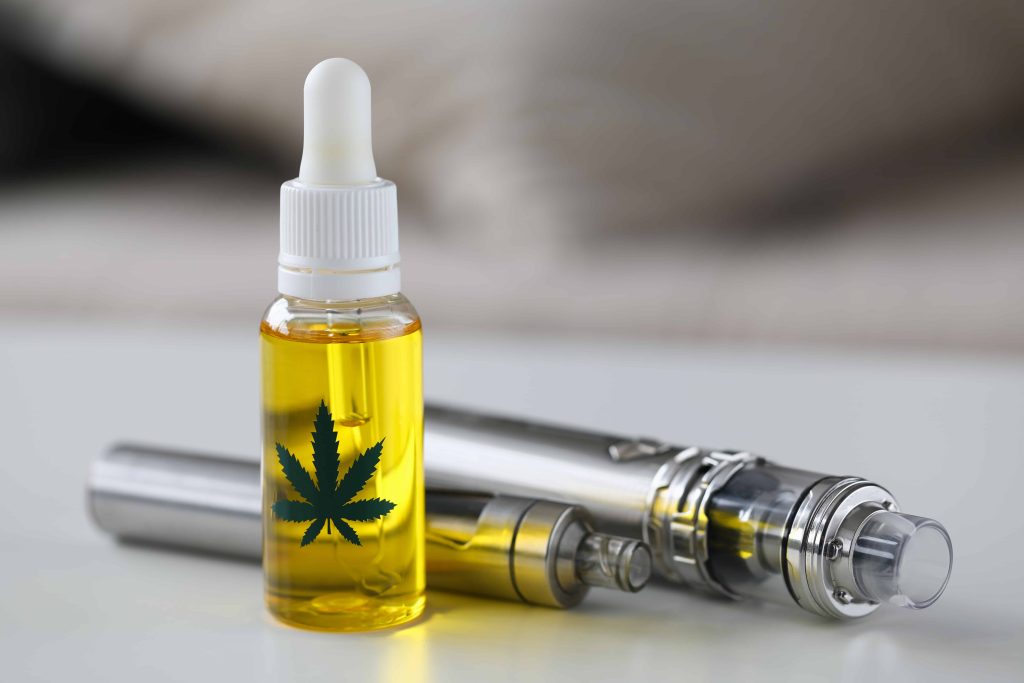To sign up for our daily email newsletter, CLICK HERE

Introduction:
In recent times, the realm of recreational substances has expanded to encompass newer alternatives like Delta 8 products, challenging the dominance of traditional nicotine products. As more individuals explore these options, it becomes crucial to discern the disparities, benefits, and potential risks associated with each. This blog post aims to provide a thorough comparative analysis of nicotine products and Delta 8 products, shedding light on their unique characteristics, effects, and considerations.
Nicotine Products:
Nicotine, primarily derived from tobacco, has been consumed for centuries and is commonly found in various forms such as cigarettes, cigars, chewing tobacco, and e-cigarettes. Known as a highly addictive stimulant, nicotine affects the central nervous system, resulting in increased heart rate, elevated blood pressure, and a sense of relaxation or euphoria. However, long-term use of nicotine products poses numerous health risks, including lung and cardiovascular diseases, cancer, and addiction.
Delta 8 Products:
Delta 8 products have gained significant popularity in recent years, particularly in regions where cannabis has been legalized. Delta 8 tetrahydrocannabinol (THC) is a minor cannabinoid found in cannabis plants. It offers a milder psychoactive experience compared to Delta 9 THC, which is more commonly associated with marijuana. Delta 8 products can be found in various forms, including edibles, oils, vape cartridges, and tinctures.
Effects and Benefits:
The effects of nicotine products and Delta 8 products vary significantly. Nicotine primarily acts as a stimulant, providing a temporary boost in alertness and concentration. However, the addictive nature of nicotine often leads to difficulties in controlling consumption, resulting in dependency and withdrawal symptoms.
Delta 8 products, on the other hand, offer a more relaxed and euphoric experience. Users often report feelings of calmness, upliftment, and mental clarity. Many individuals turn to Delta 8 products for potential therapeutic benefits, such as pain relief, reduced anxiety, and improved sleep quality. However, it is important to note that research on the long-term effects of Delta 8 is limited, necessitating further studies to fully understand its impact on human health.
Legality and Regulation:
The legality of nicotine and Delta 8 products varies depending on the jurisdiction. Nicotine products are generally regulated, with restrictions on their sale, marketing, and use being commonplace. In contrast, Delta 8 products exist in a legal gray area. While some states have legalized them, others have imposed restrictions or outright bans. It is crucial for consumers to familiarize themselves with local regulations before purchasing or using Delta 8 products.
Safety Considerations:
In terms of safety, nicotine products carry a higher risk due to their addictive nature and association with various health problems. Prolonged use of nicotine products can lead to nicotine dependence, respiratory issues, cardiovascular diseases, and an increased risk of cancer. Additionally, secondhand smoke from nicotine products poses health risks to bystanders.
While Delta 8 products may offer a potentially safer alternative to nicotine, caution must be exercised. Given that the market for Delta 8 products is relatively new, quality control and consistency may vary among manufacturers. It is advisable to purchase Delta 8 products from reputable sources that provide third-party lab testing to ensure product safety and purity.
Conclusion:
In conclusion, the decision between nicotine products and Delta 8 products hinges on various factors, including personal preferences, health considerations, and legal restrictions. Nicotine products have a long-established history of use but are associated with significant health risks. In contrast, Delta 8 products offer a potentially milder and more therapeutic experience. However, both options warrant caution, and individuals should be well-informed about the potential risks and make responsible choices based on their individual circumstances.